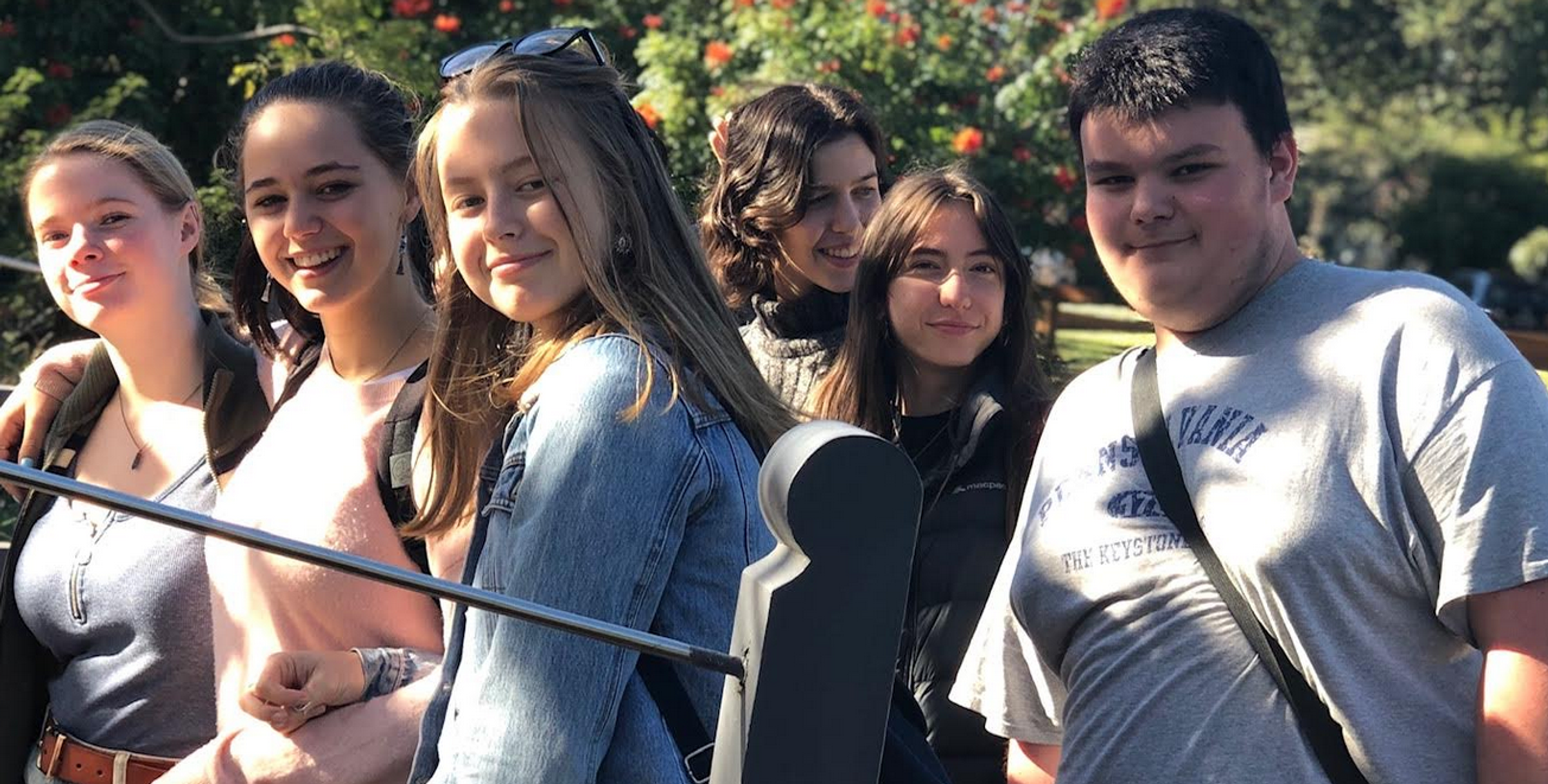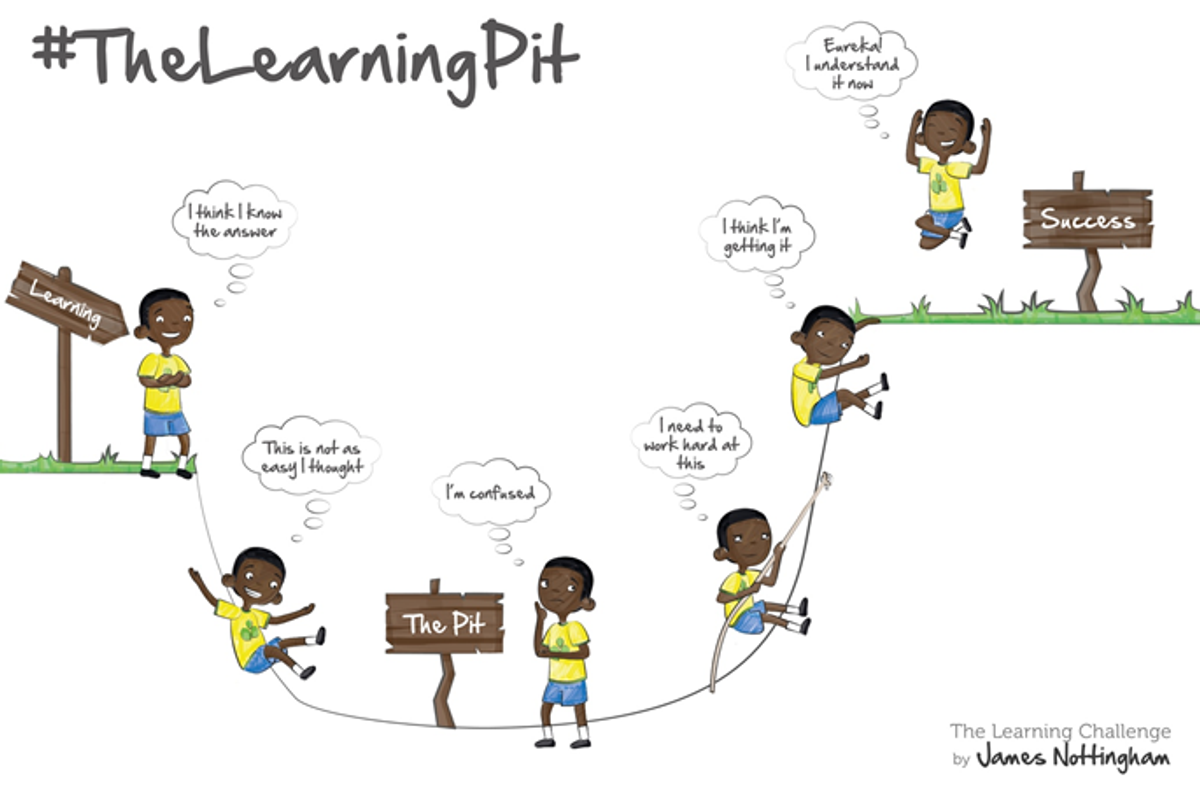DP News

Beyond inertia and the critical discomforts of learning
by Daniel Symons, Years 11 & 12 Coordinator
We’ve all heard the clichés: ‘no pain no gain’, ‘nothing easy is worth doing’ and ‘whatever doesn’t kill me only makes me stronger’ (we can thank Nietzsche for the last one).
The Preshil ethos of ‘courage’ emphasises the adoption of an enthusiastic posture in response to personal development, empowering students to take ownership of their learning experiences as they engage in “open-ended exploration, persistence with materials, techniques, concepts and reflection [which] all build the skills of enquiry” (The Courage document, p16). These are core to developing resilience.
In our recent Years 11/12 Forum, we discussed James Nottingham’s conceptualisation of The Learning Pit, from his 2017 book, The Learning Challenge. Nottingham challenges a belief that many people still hold: that learning should be easy, comfortable or pleasant. It’s common for us to look at a skilled person and think, ‘They must be a fast learner’ or ‘I wish I was as naturally talented as they are’. Sadly, thinking this way only robs us of opportunities to develop ourselves and gives us an easy excuse for not trying.
Source: https://www.challenginglearning.com/resources/images/pit-thoughts/
Our Years 11 and 12 students embodied the Preshil tradition of having ‘courage to question’, raising some objections to Nottingham’s model. Students reasoned that, while embracing uncertainty and discomfort was necessary for learning, rest and celebration were also crucial to the learning process, and learning is hindered by unyielding or significantly intense stress. They certainly have a point: finding balance in the tension between positive pressure and respite can be a significant challenge in the pace of everyday life.
The beauty of Nottingham’s model, however, is in its capacity for developing resilience. Rather than being frozen in fear of the overwhelming quantity of knowledge required of us to learn, we acknowledge to ourselves that we have the time, resources and support to get there in the end. Rather than berating ourselves for what we don’t yet understand, we celebrate the availability of knowledge and our inherent human capacity to absorb it. Rather than responding to the phrase, ‘I don’t know’ with self-shame, we wear it with the strength of humility and awareness of opportunity.
This way leads to a community that is resilient to pretentious performativity, faux intellectualism and corrosive insecurity. We will learn new and better ways to be authentic. We become able to celebrate those who have surfaced on the other side of a hard learning journey, knowing we will be able to follow them.

